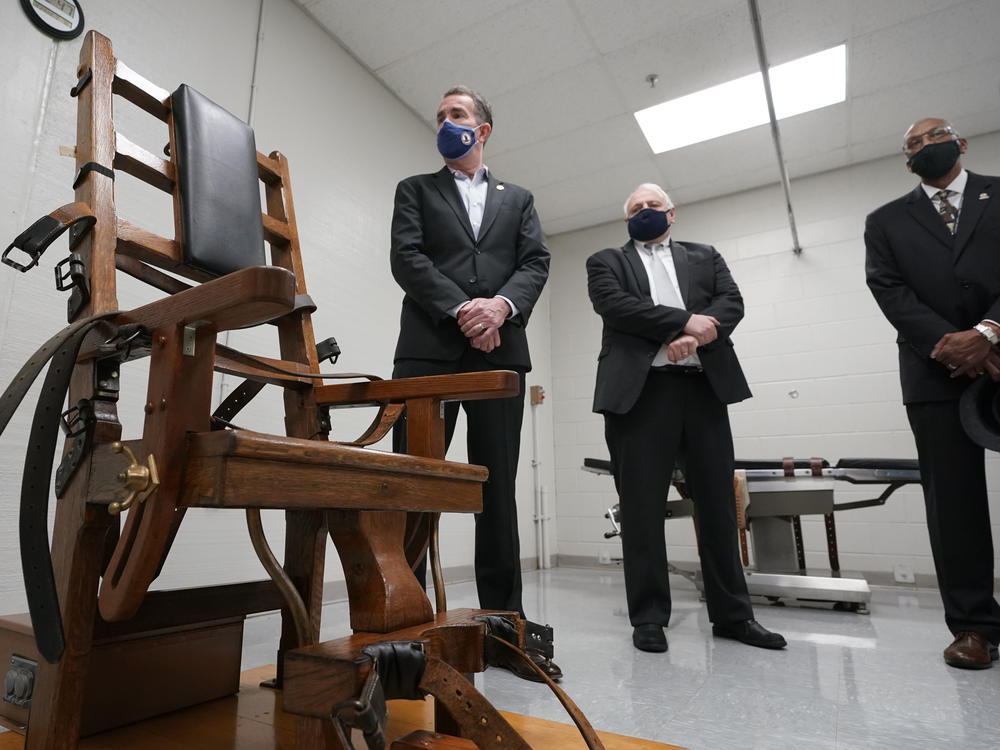Section Branding
Header Content
Virginia Governor Signs Law Abolishing The Death Penalty, A 1st In The South
Primary Content
On Wednesday, Virginia Gov. Ralph Northam signed a bill into law abolishing the death penalty in the state after the Democratic-controlled legislature passed the measure late last month.
"It is the moral thing to do to end the death penalty in the Commonwealth of Virginia," said the governor.
Northam, a Democrat, held the ceremonial bill signing at the Greensville Correctional Center just outside Jarratt, Va., where the state houses its execution chamber.
Virginia is the first state in what was the Confederacy to stop using the punishment. The commonwealth has executed more people than any other state since the first execution took place at Jamestown in 1608.
Opponents of the death penalty cite the high cost, the possibility of executing the innocent and the disproportionate racial impact. Black defendants are more likely to face death sentences, especially when victims are white.
"The death penalty is the direct descendant of lynching. It is state-sponsored racism, and we have an opportunity to end this today," said Democratic Del. Jay Jones, speaking on the floor of Virginia's House of Delegates last month.
Virginia has gone through several racial reckonings in the last few years. Michael Stone, executive director of Virginians for Alternatives to the Death Penalty, says the 2019 controversy involving Northam and an old racist yearbook photo may have brought the state closer to this point. "I think the governor's blackface scandal certainly predisposed him to being far more sensitive about racial justice issues."
And then came the police killing of George Floyd in Minneapolis last year.
"The Black Lives Matter protests turbocharged the move toward criminal justice reform in general and death penalty abolition in particular," says Stone.
Two Republicans voted with Democrats in favor of abolition, but the Republican Party has been largely unified in opposition to abolition, along with law enforcement groups that want to keep the penalty for people who murder police officers.
Many victim's families have spoken out against the death penalty, saying it makes healing more difficult.
Rachel Sutphin is a vocal opponent of the death penalty and objected to the 2017 execution of her father's killer. William Morva, who was the last person to be executed in Virginia, fatally shot her father, Eric Sutphin, a police officer, in 2006. She objected to Morva's execution in part because he was diagnosed with a serious mental illness.
"There are many of us, and we have continually spoken out. This is not what we want," Sutphin says. "However, we do want to honor those who disagree with us. We are not speaking against them, but against this issue that we see as wrong in our society."
Northam thanked lawmakers for getting the bill to his desk. "Virginia will join 22 other states that have ended use of the death penalty. This is an important step forward in ensuring that our criminal justice system is fair and equitable to all."
Copyright 2021 VPM. To see more, visit VPM.
Correction
An earlier version of this story misspelled the town of Jarratt, Va., as Garrett.
Bottom Content

